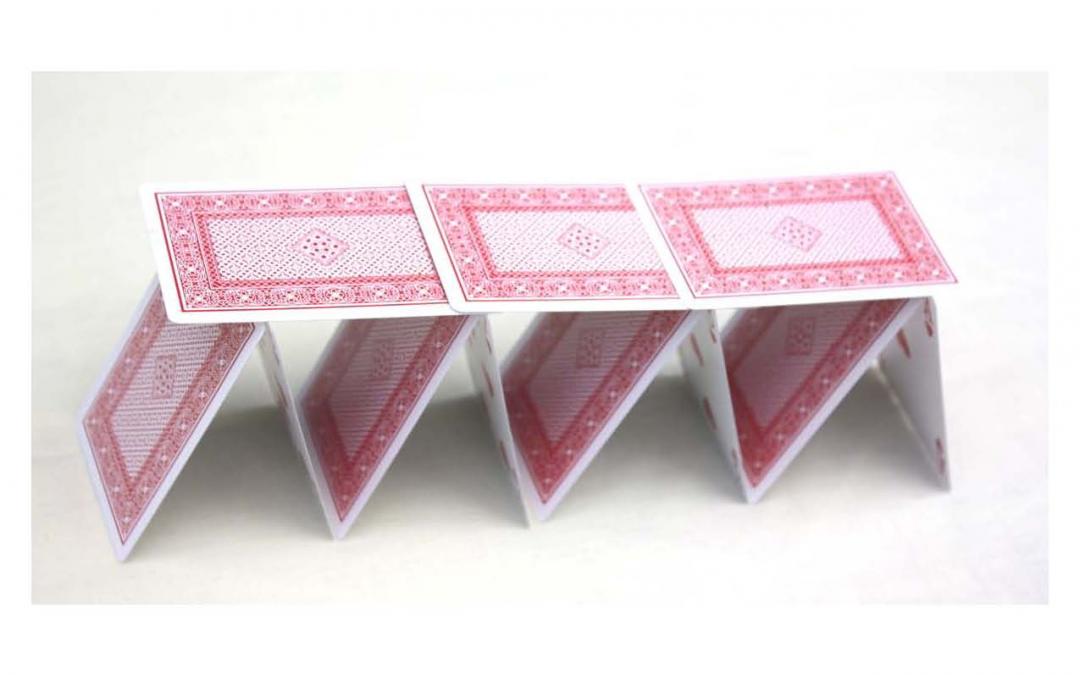The most amazing thing about houses of cards isn’t how flimsy they are. It isn’t the delicate, precarious balance required to make them stand. It isn’t the skill with which they need to be assembled or the guile required to make it appear as if they have substance. It isn’t even the fact that so many people willfully suspend their disbelief to impart actuality to them — and willfully suspend their common sense to invest faith in them. No.
The most amazing thing about houses of cards is that so many of them stand so long.
But that cracking sound you hear may be the chimerical foundations of a particular group of these houses of cards buckling under the weight of their self-induced implausibility. Judging by these posts (selected from a larger and growing sampling), the shifting sands under Gartner’s ephemeral footing seems to be undergoing inspection long overdue and empirical observations long unstated:
And Gartner’s not alone. The characteristics of the ilk are self-evident enough that other members of that ilk can be identified readily. (If it weren’t for the middle-age paunch that makes orange jump suits look so unflattering on me, I’d name them.) While they’re not identical, all of them possess some of the same physical attributes and skullduggerous propensities. To wit:
- They all have arms long enough and fingers deft enough to pick the pockets of large companies with one hand, while scooping the loose change from the pockets of the vendors that aspire to serve those large companies with the other.
- They all have the knack for passing off secondary, tertiary, and anecdotal source material as research and charging handsomely for it.
- They all have keen eyes for the gullible and keen ears for the latest crazes, phrases, and faux-intellectual gibberish.
- They all have uncanny knacks for identifying industries so panic-starved for information they’ll accept reports that have no valid premises, no consistent or objective evaluative criteria, and no soundly constructed arguments to support their ostensible conclusions.
- They all exhibit pathological lacks of conscience.
I don’t want to be misunderstood. Building houses of cards can be fun. The challenge of erecting flimsy structures without standards, structure, substance, or support can be an enjoyable challenge of touch, finesse, and guile.
But if you’re invited into a house of cards, make sure it’s not a game of three-card Monte.
Nothing up my sleeve.
—
Photo by Melodi2, courtesy of Morguefile.com.

